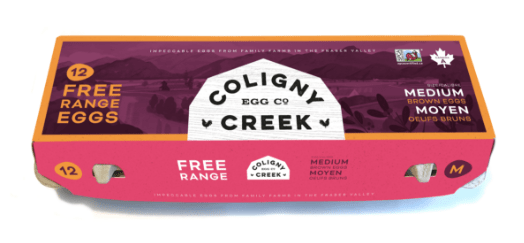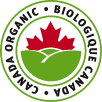The story begins with a red roofed barn in the community of Mt. Lehman, built by a compassionate family dedicated to animal welfare.
At Coligny Creek Egg Co., we’ve been nurturing chickens and producing premium eggs in BC’s beautiful Fraser Valley for over 35 years.
DOWN ON THE FARM
Committed to ethical farming practices, all our eggs are free range, and our cherished, outdoor-roaming hens are fed a premium vegetarian diet with no animal by-products. Our happy hens lay exceptional eggs, transported directly to stores to be enjoyed by those who appreciate ‘a good egg’ with moral standards.
It’s as close as you can get to picking them up from the farm yourself. We’re a small, local business with true authenticity, knowledge, and integrity; all the right ingredients to create an exemplary environment, producing ‘impeccable eggs’.
YOUR QUESTIONS ANSWERED
Is ‘free run’ the same as ‘free range’?
No. Free Run eggs are produced by hens that run free in an open concept barn that has a variety of nests and perches. They’re not housed in cages, but they always stay indoors. Free Range hens have the same freedoms but they also have access to roam outdoors on pasture when weather permits. We far exceed the minimum requirements for pasture size, and the amount of time our birds get access to that outdoor pasture.
Free Range hens are able to socialize and move about the barn without restriction so they can express natural behaviours. They get plenty of exercise and enjoy excellent health and vitality because the environment is well maintained and kept free of contamination or harmful bacteria.
What do your hens eat?
Our Free Range and Organic hens are given a completely natural vegetarian feed, containing vegetables, grains, and minerals. No fish or animal byproducts are used.
Since our hens all have access to outdoor pasture, their natural behaviour is to scratch and peck at the ground to uncover bugs, worms and any other little critters they can find to supplement the food we give them.
What does the date on the carton mean?
The ‘best before’ date indicates the time the eggs will maintain Grade A quality, if stored properly. It is normally 28 to 35 days from the date of packing. If you use them after that date, they’re better for baking, hard boiling or scrambling rather than poaching or frying.
I’ve heard that ‘organic’ is just a marketing term. Is that true?
That isn’t true. Organic farming represent a choice to work in a way that places an emphasis on animal welfare, health, nutrition and the environment, federally regulated by the CFIA.
Certified organic eggs are produced:
• From cage-free hens that are free to range, nest, roost, dust bathe and socialize;
• In accordance with a written set of standards that are verified by a third party certifier;
• From hens that are fed certified organic grains and oil meals that do not contain animal by products and are grown: on certified organic land, WITHOUT: synthetic pesticides, hormones or steroids, antibiotics or chemical medications, the use of any GMO, or synthetic dyes or pigments.
They’re raised in an environment where animal welfare is a higher priority than producing the lowest cost product.
How nutritious are eggs? Are they healthy?
It’s hard to imagine we ever thought eggs were anything but nutritional powerhouses. They’re packed with 6 grams of protein (3 grams in the white, 3 grams in the yolk), lutein, and zeaxanthin for sharp eyesight, choline for memory longevity, and healthy unsaturated fats like omega-3 fatty acids. And a single egg has just 70 calories, meaning you reap the benefits without risking a belly bulge.
Will eating eggs raise my cholesterol?
The results of recent studies indicate that eating eggs daily can actually lower your risk of heart disease. Even though studies in the past indicate that eating eggs can result in cholesterol issues, the study published by the American Journal of Clinical Nutrition indicates that research participants failed to develop any increased risk of heart-clogging diseases.
How fresh are the eggs at the store?
Eggs typically arrive at the store within 4-7 days of being laid by hens. That’s the same across Canada.
Can I store my eggs on the counter?
No. Outside Canada and the USA, eggs are stored at room temperature. So why do we stock them away in the refrigerator? Because the CFIA mandates that all large-scale egg producers wash their eggs before selling them to reduce the risk of salmonella contamination. Washing eggs rinses away the thin cuticle that protects them from bacteria seeping into the shell. That’s why we refrigerate to ensure freshness.
What does Grade A mean?
Grade A eggs have a clean and uncracked shell, a round and centered yolk, a firm white, and a small air cell. These eggs are sold at retail for all Canadians to enjoy. Look for the Canada Grade A symbol on the packaging of eggs you buy, to ensure top quality. The CFIA randomly inspects egg cartons at the grading station to ensure they meet Grade A specifications.
Are white and brown eggs different?
Shell colour depends on the hen. White eggs are laid by chickens with white feathers and white ear lobes, while brown eggs are laid by red-feathered chickens with red ear lobes. There’s even a breed of chicken called an Olive Egger that lays olive-colored eggs.
Chickens with red feathers are larger in body size and require more feed which is why brown eggs are usually more expensive on store shelves.
Are there steroids and hormones in eggs?
In Canada, you can trust that eggs are always free of added steroids and hormones. Since the 1960s it has been illegal in Canada to give them to egg-laying hens. Antibiotics and medication are only given under the direction of a veterinarian; if hens become sick, their eggs are not used for public consumption until the hens are well again.
Young laying hens are vaccinated for the same reason we vaccinate our children: to prevent specific diseases. This is true for all types of Grade A eggs available at Canadian grocery stores.
Tell me something I don’t know about eggs!
The heaviest egg reported to have been laid by a hen is one of 454 g (16 oz), with a double yolk and double shell, laid by a White Leghorn at Vineland, New Jersey, USA, on 25 February 1956.
Want to learn more? Visit the Egg Farmers of Canada website
Are you ready to try our products?
OUR IMPECCABLE EGGS
ORGANIC

WHAT IS ORGANIC FREE RANGE?
‘Free Range’ is all about access to outdoor space. ‘Organic’ refers to what they eat. We keep our hens happy by allowing them to roam outside on pasture during daylight hours, and give them an organic all-vegetarian feed.
FREE RANGE

WHAT IS FREE RANGE?
‘Free Range’ is all about access to outdoor space. We keep our hens happy by allowing them to roam freely outside on pasture during daylight hours, and give them a premium, all-vegetarian feed.

CERTIFIED ORGANIC
Certification is the process used to ensure that organic products are in line with the Canadian Organic Standards.
Organic certification is a system that helps ensure the integrity of organic products from field to table and is carried out by third-party certification bodies which have been approved by the Canadian Food Inspection Agency (CFIA). It is a minimum benchmark that determines the basic requirements for organic food production systems.

SPCA CERTIFIED FARMS
SPCA Certified is a food-labeling program that gives consumers assurance that the food they purchase comes from Canadian farms that raise farm animals to a higher set of standards.
SPCA Certified farms are visited at least once a year by a trained, independent auditor who inspects the farm to the SPCA Certified animal welfare standards. A separate panel of independent experts decides if the farm meets the requirements for certification.
Comments are closed.







